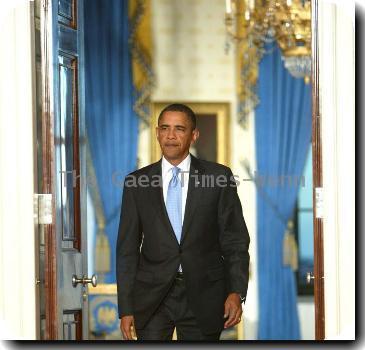Top 8 industrial democracies slam North Korea, Iran, but in terms not as strong as some hoped
By Martin Crutsinger, APSaturday, June 26, 2010
World leaders slam North Korea, Iran
HUNTSVILLE, Ontario — The leaders of the world’s eight top industrial democracies on Saturday condemned the alleged sinking by North Korea of a South Korean warship and called on Iran to do more to respect human rights.
The countries — the U.S., Britain, France, Germany, Italy, Canada, Japan and Russia — also called current restrictions on the flow of goods to Gaza “unsustainable.” And they sketched out a five-year exit strategy on Afghanistan.
But the joint statement by the so-called Group of Eight powers did not go as far as some nations, including the United States and Japan, wanted.
The joint statement was released at the end of a meeting in Canada of the eight powers and before a larger group of 20 nations convenes that also includes fast-growing economies like China.
Canadian Prime Minister Stephen Harper told reporters at the conclusion of the G-8 talks that there was a consensus among world leaders that “we can’t afford some sort of cataclysmic event” like the collapse of Lehman Brothers in 2008, Harper said.
“We remain very engaged and very watchful of those situations,” he said.
The G-8 discussions took place at a resort in Canada’s forested Muskoka lakes region. The leaders took helicopters back to Toronto. President Barack Obama gave British Prime Minister David Cameron a ride back to Toronto in Marine One. The two were scheduled to have one-on-one talks later in the day.
The G-8 leaders turned to foreign policy matters after finding themselves at odds on how to continue to spur world economic growth in the aftermath of the worst recession since the 1930s. The countries were divided over whether to continue government stimulus spending, as the United States wants, or to cut mushrooming deficits, as Europe and Japan want.
On the March sinking of the South Korean warship Cheonan, the leaders cited an independent report that found that the ship had been sunk by a North Korean torpedo. The leaders said: “We condemn in this context the attack which led to the sinking of the Cheonan.”
Japanese officials said that the Russians were the only ones in the G-8 to resist tougher language condemning North Korea.
An official in the Russian delegation, who spoke on the condition of anonymity because the leaders were meeting, said that Russia still did not consider the results of the commission to be final and because of this, felt that condemning Pyongyang further could lead to negative consequences.
“We condemned North Korea for its irresponsible behaviour,” French President Nicolas Sarkozy told reporters.
The G-8 communique criticized Iran’s nuclear program and urged greater adherence to human rights.
“We are profoundly concerned by Iran’s continued lack of transparency regarding its nuclear activities and its stated intention to continue and expand enriching uranium,” the G-8 communique said.
On Afghanistan, the joint G-8 statement said that a conference in Kabul in July would be an important setting for assessing progress in implementing commitments made in January to train more than 100,000 additional Afghan security forces by the end of next year.
The G-8 leaders said it was important to accelerate efforts to make sure the country’s own security forces can “assume increasing responsibility within five years.”
Cameron had said in a television interview on Friday that he did not expect British troops — now numbering about 10,000 — to be in Afghanistan in five years’ time.
“We can’t be there for another five years, having been there for nine years already,” he told Britain’s Sky News.
“We are profoundly concerned by Iran’s continued lack of transparency regarding its nuclear activities and its stated intention to continue and expand enriching uranium,” the G-8 communique said.
Tags: Afghanistan, Asia, Barack Obama, Canada, Central Asia, East Asia, Eastern Europe, Europe, Events, France, G-8 Summit, Huntsville, Iran, Japan, Middle East, North America, North Korea, Ontario, Russia, Summits, Toronto, United Kingdom, United States, Western Europe, World-summit

